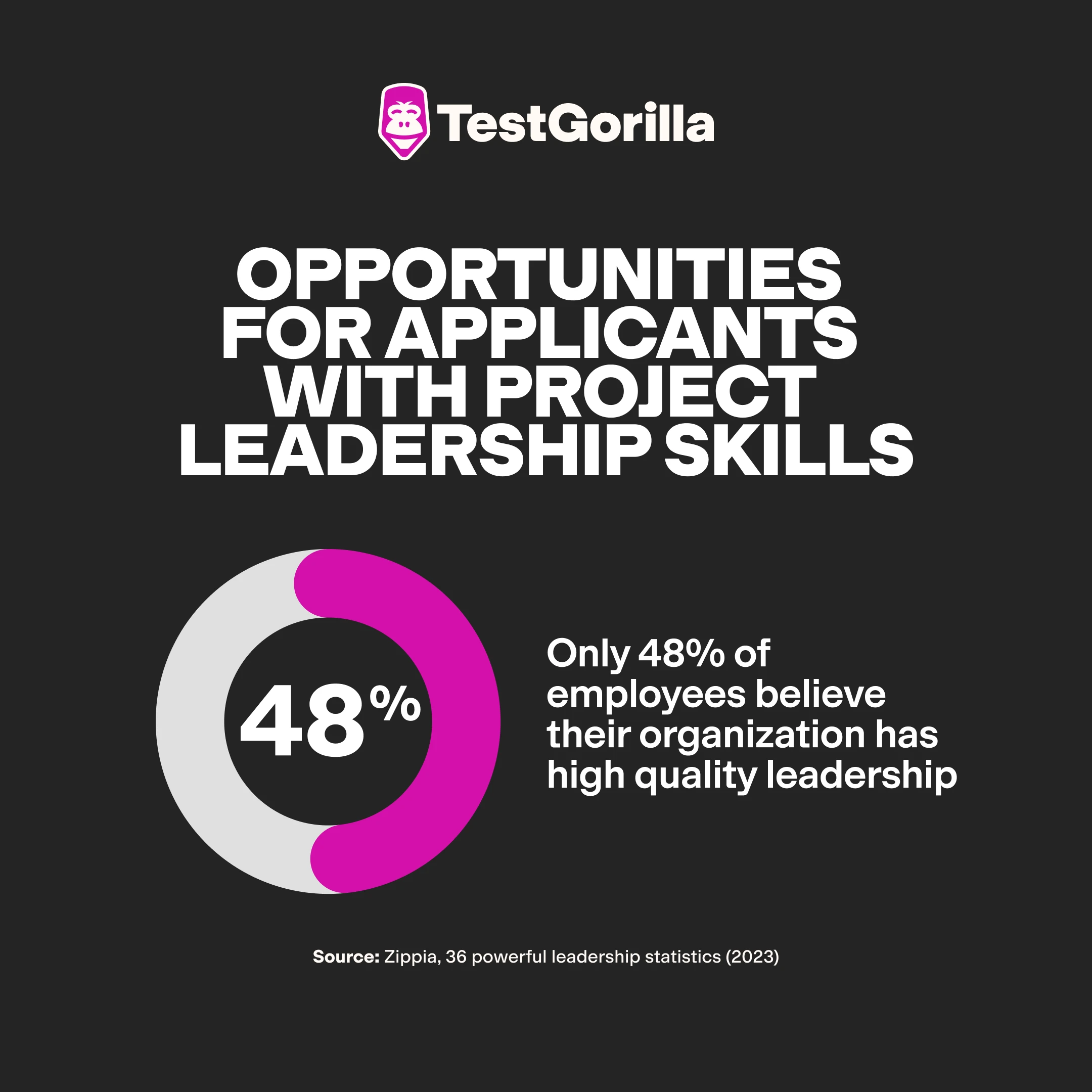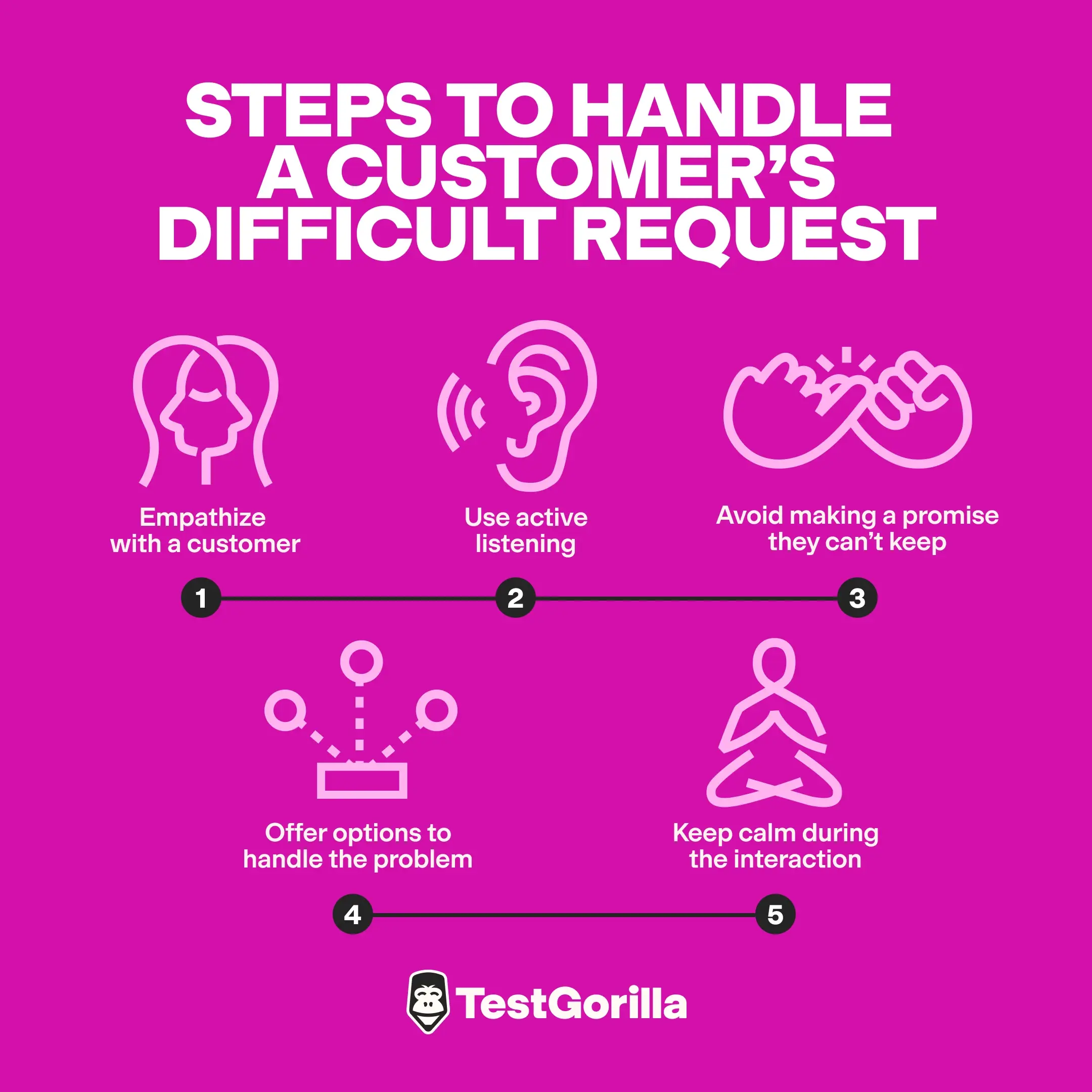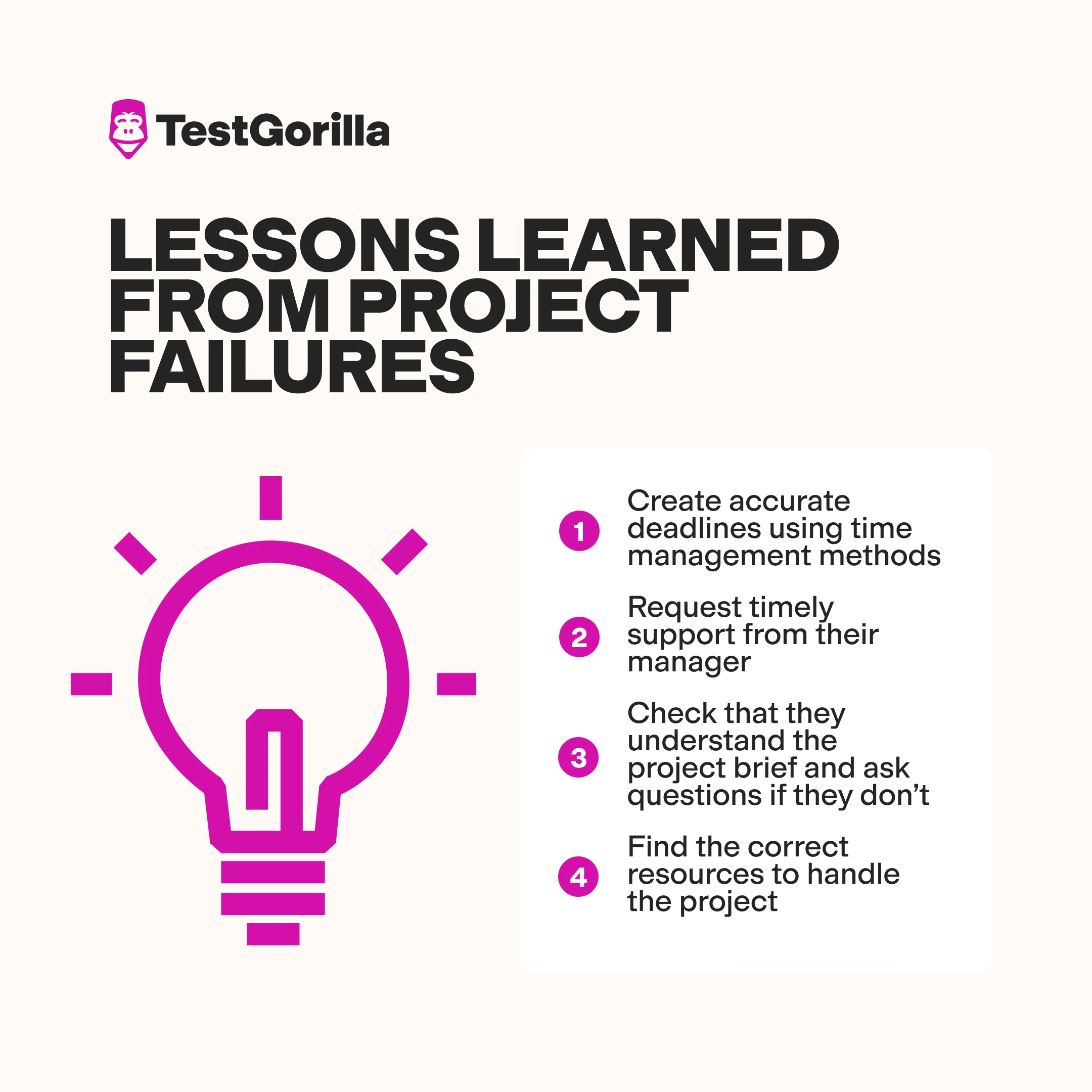20 competency-based interview questions and answers to evaluate top talent
Invite only the best candidates to interview
Do you need to hire a new employee for your business? To avoid hiring the wrong applicant, you must evaluate your candidate’s competency, skills, and behavior first.
It’s well worth using a data-driven skill assessment method that includes Cognitive Ability or Situational Judgment tests after you source applicants. Then, you can discover if your candidates’ values and competencies match your company’s mission and vision. But which interview questions are ideal for setting the correct tone during the interview?
It can be difficult to find the right questions to ask, so we’ve gathered 20 competency-based interview questions in this article for your reference. Select from our list to evaluate your candidates’ skills and behavior.
20 competency-based interview questions and answers about projects, skills, and teamwork
Ask candidates some of these 20 competency-based interview questions about projects, skills, and teamwork to evaluate their experience and aptitudes.
1. Could you tell us about a time you led a complex project? How did you handle it?
With this competency-based interview question, you can test your candidates’ management and project leadership skills. When responding, applicants should talk about a time they led a project and explain the steps they used to complete it. For example, an editor might lead a project by reading a style guide, learning about editing tools, and thinking about ways to provide feedback to writers.
Only 48% of employees consider their leadership high-quality, but you can manage this shortage by finding applicants with project leadership skills. The optimum way to assess your candidates’ leadership and project management skills is to use our Leadership & People Management, and Project Management skill tests.
2. Have you ever helped a manager resolve an issue? Which method did you use?
Problem solving is a critical part of completing projects and assisting managers. Since this skill can help applicants achieve quality work, consider if they have a method to achieve this goal.
Some applicants may use software to handle project problems and help their manager solve them. Others might collaborate with team members to find the correct strategy and present the technique to their manager.
If you want to discover more about your applicants’ problem solving skills, you can ask them follow-up questions about the outcome of their efforts or use our Problem solving test.
3. Can you tell me about a time you learned something new to complete a task?
Upskilling and learning new abilities are essential in all roles as they can help candidates handle challenging or new tasks. Applicants should be able to name what they learned and how it enabled them to complete the project.
For example, a software engineer might learn a new programming language, framework, or more about Git version control software to handle complex projects.
Don’t hesitate to ask follow-up questions to learn more about your candidates’ upskilling methods. You will notice that applicants hone their skills in different ways, such as by completing training courses or reading books.
4. Describe a time you had to handle a customer’s difficult request.
To assess your candidates’ communication skills and customer service abilities, ask them this competency-based interview question. When dealing with customers and handling their requests, applicants should know how to:
Empathize with a customer
Use active listening
Avoid making a promise they can’t keep
Keep calm during the interaction
Offer options to handle the problem
One data-driven method to assess applicants’ communication and customer service skills is to use our Communication and Customer Service tests. These tools will show which candidates can read the customer’s non-verbal cues, use professional etiquette, and improve customer satisfaction.
5. Could you tell us about a time you used attention to detail to complete a project?
Many projects require applicants to use attention to detail. Some examples of tasks that need extra focus and attention include writing articles with correct grammar for clients and programming with clean code.
Since it’s a skill that can enhance the quality of the candidate’s output, attention to detail is crucial for candidates. Check whether your applicants have attention to detail with our Attention to Detail test or ask them for work samples from side projects to check their accuracy.
6. Could you explain how you’ve increased your company’s revenue?
Applicants who can increase your company’s revenue are the ones to consider for your vacancy. They may achieve this goal in many ways. For instance, an HR professional might hire capable talent who increases the company’s profits. A software developer might fix an issue, enhance the user experience, and increase an app’s users.
Ask whether applicants have yielded good financial results for their organization to learn if they match your company’s expectations.
7. Can you tell us about a time you increased your output or the quality of your work?
Candidates should aim to enhance the quality of their work and output for customers since it can help to improve the company-client relationship. Whether applicants complete training courses or seek support from their manager, they should have a method to improve their work.
Be wary of candidates who think their work doesn’t need improving, and consider hiring candidates willing to undergo training with your company.
Optimize your interviews with TestGorilla's skills assessments
Transform your interviews with our tailored skills tests. Sign up for a free live demo and see how to complement your competency-based interviews.
8. Describe a time you collaborated successfully with a team.
Teamwork is a critical factor that can help companies complete complex projects. For example, a teacher could collaborate with other staff on their team to create fun and exciting lesson plans. Your applicants should understand the value of teamwork and explain how their efforts led to good results.
Communication is an essential part of working on a team. Consider if your candidates communicate efficiently or use communication tools to discuss projects with team members. Use our Communication skills test if you need extra statistics or candidate data to assess your applicants.
9. Name a time you had to make a challenging decision in the workplace.
Not all workplace decisions are easy to make, but making difficult decisions is a crucial process. With this question, you can check whether your candidates have experience making decisions that require analytical skills and business knowledge.
The methods each applicant uses to make challenging decisions will differ — some may gather statistical data to help them proceed with a decision, others might hold a meeting with their team and gather opinions.
It’s worth considering that each decision-making process can depend on the context, but you can ask candidates to provide a five-step method that helps them with this goal. You can also assess applicants with skill tests such as our Problem solving or Critical Thinking tests.
10. Can you tell us about a time you had to work under pressure?
It can be impossible to avoid working under pressure in the workplace, but candidates should have methods that make this process easier. Some candidates might eliminate as much uncertainty as possible to help them make decisions faster under pressure. Other interviewees might take regular breaks and return to work when they feel most productive.
Ask more questions related to working under pressure to check if your candidates’ output improved with their stress management strategies, and consider if their methods match your company’s expectations.
11. Could you tell me about a time you used a creative strategy to solve a problem?
With this competency-based interview question, you can test your applicants’ problem-solving skills. Since each circumstance is unique, candidates will provide different answers. However, you should expect candidates to mention a time they thought of a unique method to solve a problem.
For example, some applicants might alter project management strategies with Excel spreadsheets to clarify a process. Others might ask team members to switch roles for a day to understand each other’s duties. To determine their strategy’s effectiveness, ask questions like, “How did your creative method help you achieve the desired output?”
12. Have you ever had to handle changes in the workplace? Explain how you did it.
Encountering change in a work environment is generally inevitable, but it’s not impossible to navigate. Many methods can help team members handle workplace changes, including:
Staying positive
Establishing new targets
Accepting and transitioning to changes
For example, sales representatives might have to stay eager to adopt new software systems, achieve new sales targets with the help of the systems, and accept and transition to the changes.
Be cautious of applicants who resist or find workplace change difficult — if your company offers a fast-paced environment, these candidates might not match your requirements.
13. Could you tell us about a time you supported a struggling team member?
Being a team player often requires candidates to support junior or inexperienced team members. Candidates should know that while they shouldn’t sacrifice their targets to help co-workers, they should offer the correct advice to assist them.
One prime example of effective teamwork is an accounts payable team providing accounting tools and methods to help accounts receivable teams quickly process client payments.
Listen for responses that explain the outcomes of the candidate’s support. For example, the accounts receivable team members will have improved their client payment processes due to the extra advice, tools, and methods.
14. Name a time you failed to complete a project. What did you learn?
Project failures can have many causes. Candidates might underestimate the time required to complete a project or lack the resources to handle it efficiently. They may have to get more input from the client or manager, or they may have misunderstood the project brief. In these cases, candidates may have learned to:
Create accurate deadlines using time management methods
Request timely support from their manager
Check that they understand the project brief and ask questions if they don’t
Find the correct resources to handle the project
If candidates use the STAR method to structure their answers, you can expect them to explain the result of their acquired knowledge. They should mention the situation and specific task when responding to the question, as well as the action and results they achieved. When discussing the results, they may explain that they encounter fewer problems when estimating project deadlines and notice that their clients are happier with their work.
15. Describe your biggest work-related achievement so far.
This competency-based interview question will help you learn if your candidate is determined and ambitious enough to achieve significant career milestones. Each candidate will have a different work-related achievement, so you will receive different answers.
For example, an editorial assistant might receive a promotion to a junior editor role upon honing their editorial skills and learning about the company. Or after showing their skills in challenging projects, a software developer might become a project maintainer.
One way to assess answers is to consider how your candidates achieved their most significant goals. If their methods match your organization’s expectations, you should consider inviting them to a second interview.
16. Share a time you experienced a conflict while working with your team.
Although 26% of employees consider work conflict a common occurrence, your candidates should understand how to handle team disagreements. Team conflicts can happen for several reasons:
Candidates might find it difficult to work with team members who underperform
They might feel demotivated by co-workers who lack motivation
Applicants might find it difficult to collaborate with team members due to differences in personality or work styles
Some applicants might communicate with team members, while others might create plans to efficiently manage the conflict.
To assess your applicants, consider if your applicants’ conflict management methods match your company’s values, mission, and vision.
Streamline candidate screening with TestGorilla
Boost your recruitment with our practical screening tools. Sign up for your free TestGorilla plan to access assessments that align with competency-based interview strategies.
17. Have you ever used leadership skills to complete a project with a team?
If hiring a team leader or manager, ask candidates this competency-based interview question to understand their leadership abilities. Candidates should have experience with team lead and project management duties, and show management ability when they respond.
Consider if your applicants can communicate with their team, use appropriate task management strategies, delegate projects, and offer feedback to team members before you decide to hire someone.
18. Could you tell us about a time you used time management skills for a project?
Since time management ensures teams complete projects on time for clients, your candidates must have this skill. Whether they use time-tracking software or set small targets to achieve their milestones, your candidates should understand how to manage their time.
Check if your candidates understand why time management is important, and use our Time Management test for a straightforward candidate assessment method.
19. Have you ever had to change your communication style to suit different team members?
Employees must interact with team members, stakeholders, and other teams in the company to complete their work. They should use the right communication style for each individual they communicate with.
For example, a software engineer might have to communicate with a non-technical team member about their project. It’s easy for them to achieve this if they use jargon-free language to share the appropriate information. What’s also ideal is to ensure the team member understands the facts by asking them a few questions.
Since using the correct communication style is important for candidates, check their skills with a Communication skills test.
20. Describe a time you had to collaborate with a team member whose methods differed from yours.
Not every team member will have the same working style as your applicant, so it’s worth checking if they can efficiently work with a diverse group of employees. Ask your applicants if they can compromise when team members use different methods.
To review your applicants’ responses to this competency-based interview question, check if their methods match your company’s project management methods.
When should you use competency-based interview questions in the hiring process?
For a simpler hiring process, we recommend using competency-based interview questions after you send all applicants a skills assessment. When your candidates have completed the assessment, you can use the results to make insightful decisions about which candidates to invite to an interview.
Skills tests have many benefits when you use them before the interview. This approach helps you:
Hire an applicant based on their skills
Reduce the chances of hiring the wrong applicant
Compare two candidates with similar competencies
Ensure you reap the benefits of skills testing methods to reduce your time-to-hire metrics and hire the best professional.
The best insights on HR and recruitment, delivered to your inbox.
Biweekly updates. No spam. Unsubscribe any time.
Use competency-based interview questions to hire an expert
With competency-based interview questions, you can learn about your candidates’ abilities, experience, and project completion methods and find the best expert for your team. Pair this with skills tests for a winning combination to evaluate and hire applicants.
Skills tests provide the data-driven method many companies adopt to find top professionals. Try TestGorilla for free and find candidates that match your role and company.
Related posts
You've scrolled this far
Why not try TestGorilla for free, and see what happens when you put skills first.




















